In “The Ethics of Pest Control: A Balanced View,” you will discover a thought-provoking exploration of the moral considerations surrounding pest control practices. This insightful article aims to shed light on the ethical implications of pest management, delving into the various perspectives and arguments that shape this controversial topic. Whether you are a homeowner seeking effective solutions or simply interested in the ethical dimensions of pest control, this article will provide you with a well-rounded perspective that prompts further reflection. So, let’s embark on this journey of contemplation, addressing the nuanced issues surrounding pest control with an open mind and a commitment to balance.
Pest Control Methods
pest control methods are essential for maintaining a comfortable and healthy living environment. Whether it’s dealing with ants, mosquitoes, or rodents, there are various methods that can be used to combat pest infestations. These methods can be broadly categorized into two groups: chemical and non-chemical.
Chemical Methods
Chemical methods involve the use of pesticides to eliminate or control pests. Pesticides are substances that are designed to kill or repel pests, and they can be highly effective in eradicating infestations. Common chemical pest control methods include the use of insecticides, rodenticides, and herbicides.
While chemical methods can be effective, it is important to use them responsibly and according to label instructions. Pesticides should only be used as a last resort when non-chemical methods have failed, and their use should be limited to specific target areas rather than widespread application.
Non-Chemical Methods
Non-chemical methods of pest control focus on prevention and exclusion rather than relying on pesticides. These methods involve taking steps to eliminate the conditions that attract pests and to physically prevent them from entering your home or property.
Some common non-chemical pest control methods include:
- Sanitation: Keeping your living area clean and removing potential food sources for pests can help reduce infestations.
- Exclusion: Sealing cracks and openings in walls, windows, and doors can prevent pests from entering your home.
- Traps and barriers: Using sticky traps, pheromone traps, or physical barriers can help capture or deter pests.
- Biological control: Introducing natural predators or parasites to control pests can be an effective and environmentally friendly method.
By utilizing non-chemical methods, you can reduce your reliance on pesticides and minimize the potential negative impacts on the environment and human health.
Environmental Impact
When it comes to pest control, it is important to consider the potential environmental impacts of the methods used. Chemical methods, in particular, can have unintended consequences on non-target organisms, soil and water contamination, air pollution, and ecological disruption.
Effects on Non-Target Organisms
Pesticides are designed to target specific pests, but they can also harm non-target organisms such as beneficial insects, birds, and amphibians. These unintended victims of chemical pest control can disrupt ecosystems and harm biodiversity, leading to imbalances in the natural food chain.
To mitigate the negative effects on non-target organisms, it is crucial to carefully select and apply pesticides, minimizing their use and considering alternative pest control methods when possible.
Contamination of Soil and Water
Pesticides have the potential to contaminate soil and water sources. These chemicals can leach into the ground and runoff into water bodies, leading to pollution and potential harm to aquatic organisms. Contamination of soil and water can have long-lasting effects on ecosystems and pose risks to human health.
To address this issue, it is important to follow proper application techniques, such as avoiding overuse or using methods that reduce pesticide runoff. Additionally, adopting non-chemical pest control methods can help prevent water and soil contamination altogether.
Air Pollution
The application of pesticides can also contribute to air pollution. When pesticides are sprayed, they can become airborne and drift to neighboring areas, potentially affecting humans, animals, and crops. Airborne pesticides can contribute to respiratory issues and pose a threat to air quality.
To minimize air pollution from pest control methods, it is essential to follow label instructions, avoid spraying during windy conditions, and consider alternative methods such as targeted applications or using non-chemical approaches.
Ecological Disruption
Pest control methods, particularly chemical methods, can disrupt ecological balance. By targeting specific pests, these methods may inadvertently harm or eliminate other organisms that play important roles in the ecosystem. This disruption can have cascading effects, leading to the decline of certain species or changes in habitat dynamics.
To mitigate ecological disruption, it is crucial to consider the broader impacts of pest control methods and opt for approaches that prioritize sustainability, biodiversity, and the preservation of ecosystem balance.
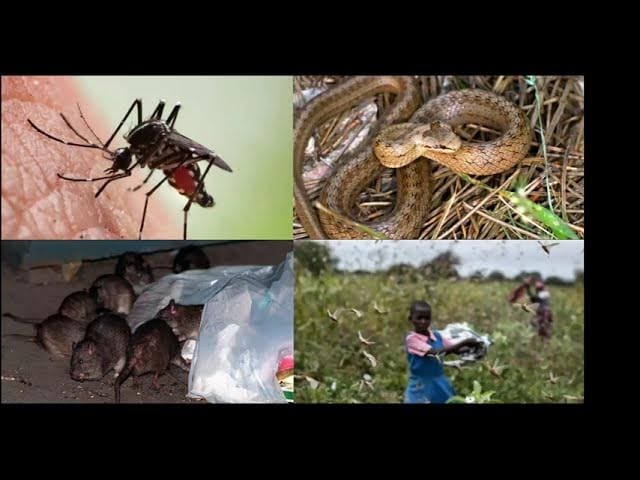
Human Health Concerns
In addition to their environmental impact, pest control methods can also pose risks to human health. It is important to be aware of the potential toxicity of chemicals, as well as the potential for residential and occupational exposure. Additionally, pets can be susceptible to the health risks associated with pest control methods.
Toxicity of Chemicals
Pesticides, by their nature, are designed to be toxic to pests. However, their toxicity can also pose risks to humans if not used properly. Exposure to pesticides can cause acute or chronic health issues, including respiratory problems, skin irritations, neurological effects, and even cancer in some cases.
To reduce the risks associated with pesticide toxicity, it is crucial to follow label instructions, wear appropriate protective gear, and consider alternative pest control methods that have lower toxicity profiles.
Residential Exposure
In residential settings, individuals and families may come into close contact with pesticides used for pest control. This exposure can occur through direct contact, inhalation of pesticide residues, or ingestion of contaminated surfaces or food.
To minimize residential exposure, it is important to use pest control methods judiciously and consider non-chemical approaches whenever possible. Properly storing pesticides, keeping them out of reach of children, and using protective measures can further reduce the risks associated with residential exposure.
Occupational Hazards
Pest control professionals face occupational hazards due to their frequent and direct exposure to pesticides. These individuals may be at a higher risk of pesticide-related health issues due to their prolonged and repeated exposure.
To protect the health and safety of pest control professionals, it is crucial to provide appropriate training, promote the use of personal protective equipment, and ensure compliance with safety regulations and best practices.
Health Risks for Pets
Pets, such as dogs and cats, can be vulnerable to the health risks associated with pest control methods. They may come into contact with pesticides while playing outdoors, ingesting contaminated surfaces or food, or grooming themselves after exposure.
To safeguard the health of pets, it is important to choose pet-friendly pest control methods and avoid using products with higher toxicity levels. Additionally, keeping pets away from treated areas until the pesticides have dried or dissipated can help minimize their exposure.
Animal Welfare
When considering pest control methods, it is crucial to prioritize animal welfare and avoid practices that may cause unnecessary harm or suffering to animals. The use of poisons, inhumane traps, and the endangerment of protected species can have detrimental effects on wildlife and ecosystem balance.
Use of Poisons
The use of poisons in pest control can result in unintended harm to wildlife. Animals such as birds of prey, coyotes, and domestic pets can become secondary victims when they consume poisoned pests or bait.
To minimize the impact on wildlife, it is important to use targeted pest control methods that reduce the risk of accidental poisonings and opt for alternatives that pose fewer risks to non-target animals.
Inhumane Traps
Some pest control methods employ traps to capture and eliminate pests. However, if not used or maintained properly, these traps can cause unnecessary suffering to the trapped animals. Inhumane traps can cause injuries, stress, or prolonged suffering before death.
To uphold animal welfare standards, it is essential to use humane traps that minimize harm and capture pests quickly and efficiently. Checking traps regularly and euthanizing captured animals in a humane manner is also important.
Endangering Protected Species
Certain pest control methods, particularly those that use indiscriminate pesticides or traps, can unintentionally harm or endanger protected species. These species may be essential for maintaining ecosystem balance or may have legal protections in place due to their conservation status.
To protect vulnerable and protected species, it is critical to avoid pest control methods that may harm or disturb them. Consideration of the local ecosystem and consultation with wildlife experts or conservation organizations can help identify which methods are compatible with protecting biodiversity.
Impacts on Ecosystem Balance
Pests, while often considered a nuisance, can play important roles in ecosystem dynamics. Removing or controlling pests without considering the broader ecological implications can disrupt the delicate balance of natural systems.
To maintain ecosystem balance, it is crucial to approach pest control with a conservation mindset. This includes considering the potential impacts on other organisms in the food chain, preserving habitats for natural predators, and using integrated pest management approaches that prioritize long-term sustainability.
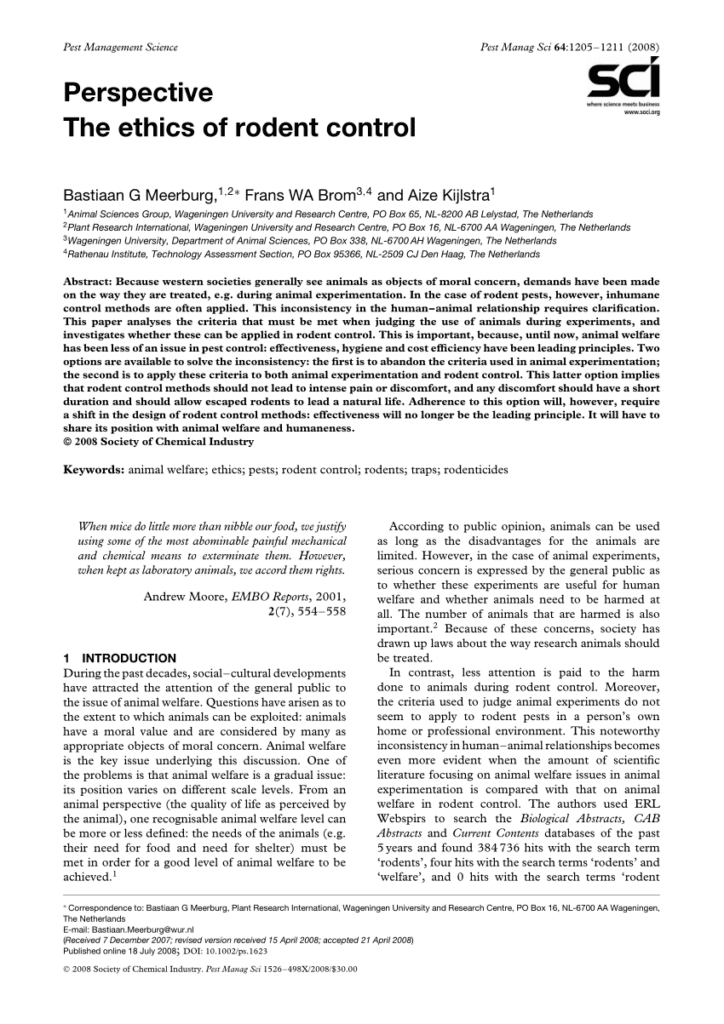
Harm to Bees and Pollinators
The well-being of bees and other pollinators is of critical importance for both ecological balance and food production. Unfortunately, some pest control methods can harm these vital species. Considering the effects of pesticides on bees, the importance of pollinators, and implementing protective measures are crucial for their survival.
Effects of Pesticides on Bees
Pesticides, particularly insecticides, can have detrimental effects on bees. These chemicals can be toxic to bees and interfere with their ability to forage, navigate, reproduce, and survive. Pesticide exposure has been linked to declines in bee populations, which has serious implications for pollination and food production.
To protect bees, it is vital to use bee-friendly pest control methods and bee-safe pesticides. Employing integrated pest management strategies that consider the specific needs and vulnerabilities of pollinators is key.
Importance of Pollinators
Bees and other pollinators are crucial for the reproduction of many flowering plants, including food crops. They facilitate pollination, contributing to the production of fruits, vegetables, and nuts that form a significant portion of our diet.
Recognizing the importance of pollinators and their role in food security is essential. By implementing pest control methods that prioritize the protection of pollinators, we can contribute to the preservation of natural ecosystems and ensure the availability of a diverse and nutritious food supply.
Alternative Pest Control Methods
To minimize the harm to bees and other pollinators, it is important to explore and promote alternative pest control methods. These methods aim to control pests without relying on chemical pesticides. Some alternatives include:
- Biological control: Introducing beneficial insects that prey on or parasitize pests can provide natural pest control while reducing the need for chemical intervention.
- Cultural practices: Implementing practices such as crop rotation, intercropping, and providing suitable habitats for beneficial insects can help naturally control pests.
- Physical barriers: Using physical barriers such as nets, row covers, or fencing can prevent pests from accessing plants without harming beneficial insects.
By adopting alternative pest control methods, we can protect pollinators and maintain a healthy and balanced ecosystem.
Protective Measures for Bees
In addition to exploring alternative pest control methods, it is important to implement protective measures for bees. Creating bee-friendly habitats, planting pollinator-friendly flowers, and avoiding the use of pesticides during peak foraging times can support bee populations and their health.
Providing access to clean water sources, reducing the use of synthetic chemicals in gardening, and raising awareness about the importance of bees can also contribute to their well-being. By taking these actions, individuals and communities can play a part in safeguarding the vital services provided by bees.
Sustainable Pest Control
Sustainable pest control focuses on long-term solutions that minimize the reliance on chemical pesticides and prioritize ecological balance. By adopting sustainable pest control practices, we can maintain pest management while reducing the negative impacts on the environment, human health, and animal welfare.
Integrated Pest Management (IPM)
Integrated Pest Management (IPM) is a holistic approach to pest control that combines various methods to effectively manage pests while minimizing environmental impact. IPM utilizes a combination of preventative measures, monitoring, and intervention strategies tailored to specific pests and circumstances.
By emphasizing prevention, such as practicing good sanitation, implementing physical barriers, and promoting beneficial organisms, IPM aims to reduce the reliance on chemical pesticides. Integrated pest management also emphasizes monitoring pest populations to determine the most appropriate intervention strategies and to limit unnecessary pesticide use.
Beneficial Insects
In sustainable pest control, beneficial insects play a crucial role in maintaining a balanced ecosystem. These insects, such as ladybugs, lacewings, and parasitic wasps, naturally prey on pests and can provide effective control without the need for chemical pesticides.
To promote beneficial insects, it is essential to create habitats that support their populations. Planting a diverse range of native plants, providing shelter, and avoiding the use of broad-spectrum pesticides can help attract and retain these natural predators.
Crop Rotation
Crop rotation is a sustainable agricultural practice that helps manage pests by interrupting their life cycles and reducing their ability to establish and multiply. By rotating crops, pests that rely on specific plants for survival are deprived of their preferred host plants, reducing their populations over time.
Crop rotation also enhances soil health and fertility, reduces the risk of disease and nutrient imbalances, and contributes to long-term sustainable agriculture practices. By implementing crop rotation strategies, farmers and gardeners can minimize pest pressure while maintaining healthy soils and crops.
Natural Predators
Introducing and promoting natural predators in agricultural and garden settings is another sustainable pest control strategy. By relying on nature’s own pest control mechanisms, such as predatory birds, spiders, and amphibians, the need for chemical pesticides can be significantly reduced.
Creating habitats that attract and support natural predators, such as providing birdhouses, constructing ponds, or planting native flora, can enhance their presence and pest control abilities. This natural approach not only reduces chemical inputs but also contributes to overall ecosystem health.
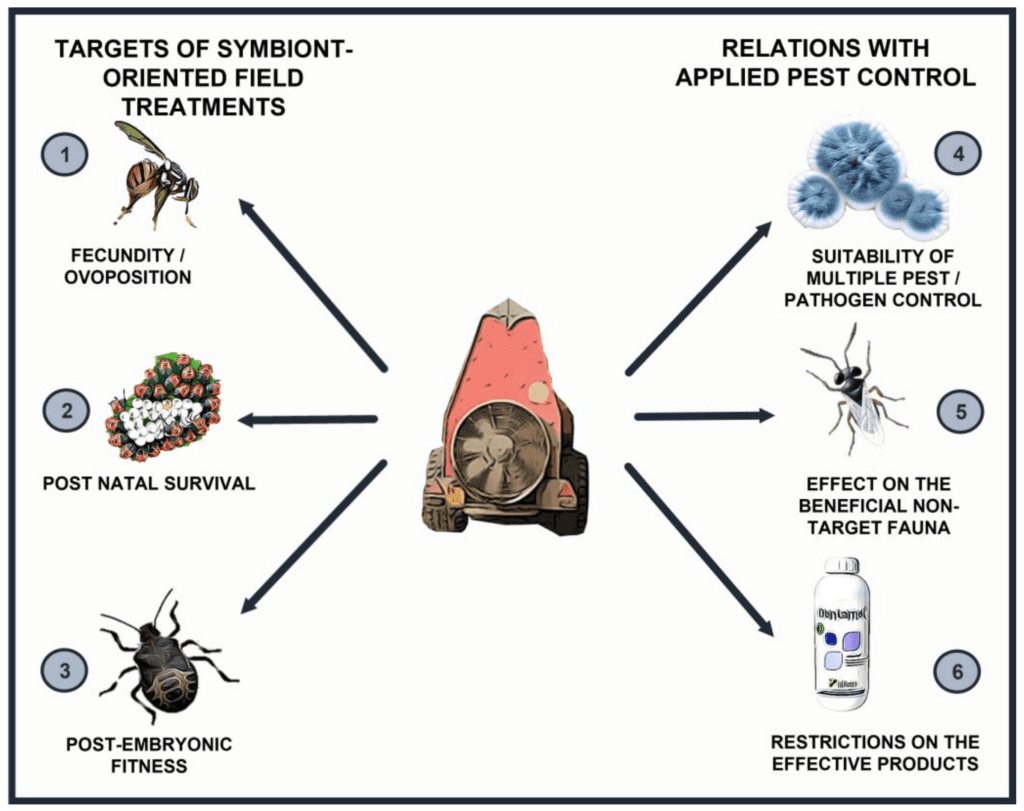
Awareness and Education
Raising awareness and providing education on pest control practices is essential for promoting responsible and ethical pest management. By informing the public, training pest control professionals, and advocating for change, we can encourage practices that prioritize sustainability and reduce environmental and health risks.
Informing the Public
Educating the public about pest control methods, their potential impacts, and the importance of sustainable approaches is crucial. Providing resources, such as informational websites, brochures, or community workshops, can guide individuals on choosing pest control solutions that align with environmental and ethical considerations.
Promoting the adoption of integrated pest management practices, highlighting the benefits of non-chemical methods, and sharing success stories can help empower individuals to make informed decisions and take action.
Training for Pest Control Professionals
Pest control professionals play a critical role in implementing effective and responsible pest management practices. Providing comprehensive training programs that emphasize sustainable pest control approaches, safety protocols, and the importance of minimizing environmental impacts is essential.
Continuous education and professional development opportunities can keep pest control professionals updated on the latest research, regulations, and best practices. By investing in training, the industry can increase its capacity to deliver ethical, effective, and environmentally friendly pest control services.
Promoting Ethical Practices
Promoting ethical practices within the pest control industry is vital to ensure responsible pest management. This includes advocating for transparency, accountability, and adherence to regulations and guidelines that protect human health, the environment, and animal welfare.
Industry associations, certifications, and regulatory bodies can play a pivotal role in setting standards, promoting ethical practices, and rewarding businesses that prioritize sustainability and responsible pest control.
Encouraging Responsible Pest Management
Encouraging responsible pest management extends to individuals, businesses, and institutions. By adopting sustainable pest control practices, reducing reliance on chemical pesticides, and incorporating non-chemical approaches, we can collectively mitigate the negative impacts of pest control on the environment, human health, and animal welfare.
Promoting responsible pest management through incentives, recognition programs, and public campaigns can help foster a culture of responsible pest control and encourage widespread adoption of sustainable practices.
Economic Considerations
While the ethical and environmental factors of pest control cannot be overlooked, it is also important to consider the economic implications of different pest control methods. Balancing the costs of alternatives, assessing the financial impact on the pest control industry, and evaluating the long-term benefits are all essential considerations.
Cost of Alternatives
While some non-chemical pest control methods may require a higher upfront investment or more labor-intensive approaches, they can provide cost savings in the long run. By reducing the reliance on expensive chemical pesticides and minimizing potential damage caused by pests, alternative methods can be financially viable and sustainable.
It is important to consider the cost-effectiveness of both short-term and long-term pest control strategies when making decisions. Conducting a thorough cost analysis and considering the potential savings and benefits of sustainable pest control can help guide decision-making.
Financial Impact on Pest Control Industry
The adoption of sustainable pest control practices may have financial implications for the pest control industry. As the demand for non-chemical methods increases, businesses that rely heavily on chemical pesticides may need to adapt their practices and diversify their service offerings.
However, the growing awareness and demand for sustainable pest control can also present new business opportunities. By positioning themselves as providers of environmentally friendly and ethical solutions, pest control companies can attract environmentally conscious customers and differentiate themselves in the market.
Balancing Profit and Ethics
Balancing profit and ethics is crucial when considering pest control methods. While some chemical pesticides may offer immediate results and financial advantages, they can carry significant environmental and health risks. On the other hand, sustainable pest control methods may require more time, effort, and resources, but they align with ethical considerations and long-term environmental sustainability.
Achieving a balance between profit and ethics requires a holistic approach. By considering the true costs and benefits of different pest control methods, prioritizing environmental and ethical values, and recognizing the long-term value of sustainable practices, businesses can thrive while maintaining responsible pest management standards.
Long-term Benefits
Adopting sustainable pest control practices can offer long-term benefits that go beyond immediate financial considerations. By preventing pesticide resistance, reducing dependence on chemical inputs, and preserving ecosystem balance, sustainable pest control methods contribute to a healthier environment, improved biodiversity, and enhanced human health and well-being.
The long-term benefits of sustainable pest control extend to increased food security, reduced environmental pollution, and enhanced resilience against pest outbreaks. By investing in the preservation and restoration of natural systems, we can create a sustainable future that benefits both current and future generations.
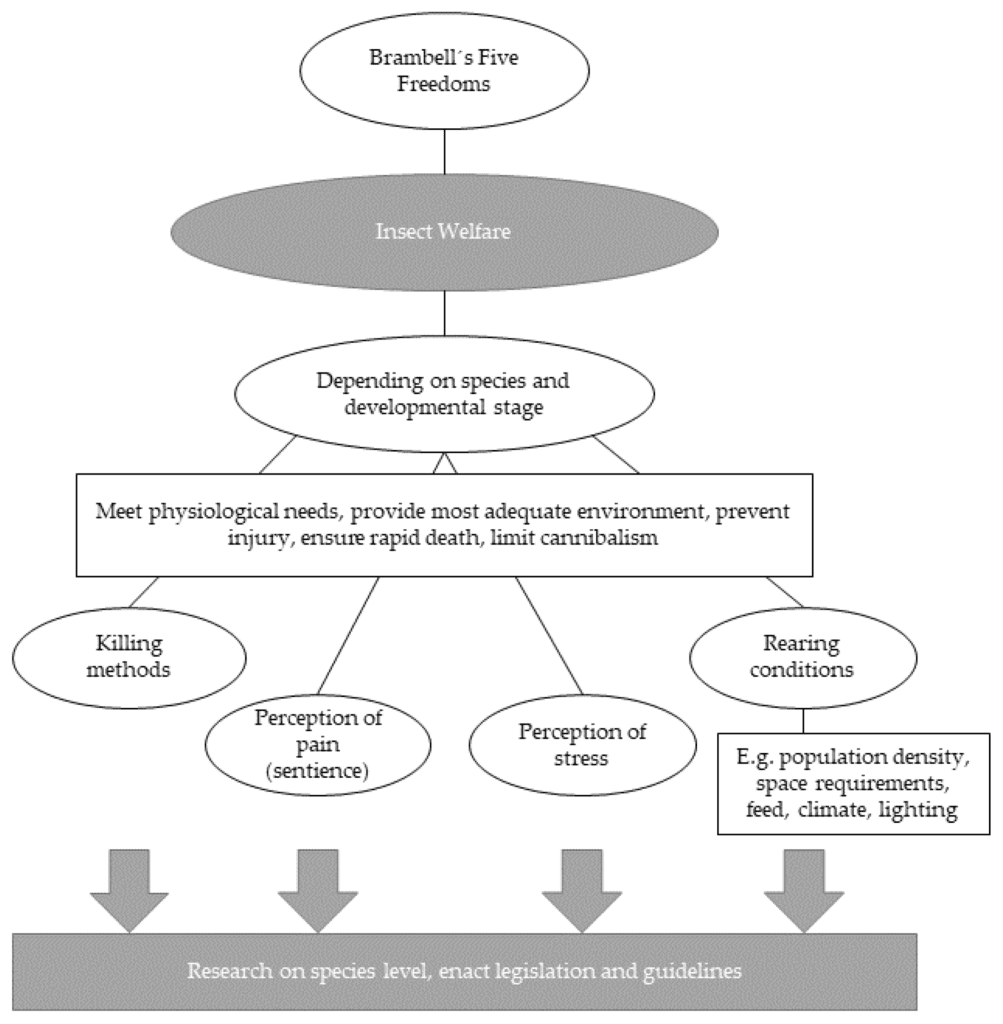
Regulatory Framework
The regulation of pest control methods is essential to ensure the safe and responsible use of pesticides, protect human health, and minimize negative environmental impacts. Government regulations, labeling and safety standards, as well as licensing and certification requirements, all contribute to a comprehensive regulatory framework.
Government Regulations
Government regulations play a vital role in overseeing and regulating the use of pesticides. These regulations set standards for product registration, labeling, storage, transportation, and application practices. They are designed to protect human health, the environment, and ensure pesticide efficacy.
Compliance with government regulations is crucial for anyone involved in the sale, purchase, or use of pesticides. Understanding and adhering to these regulations promotes responsible and safe pest control practices and helps minimize risks to both humans and the environment.
Labeling and Safety Standards
Pesticide labels provide crucial information about the safe and effective use of pest control products. They contain instructions on proper application techniques, dosage, and safety precautions. Labels also indicate the potential hazards associated with the product, including toxicity levels, restrictions, and personal protective equipment requirements.
Following label instructions is essential for minimizing risks and ensuring the desired outcomes of pest control efforts. Adhering to safety standards specified on product labels is crucial to protect human health, reduce environmental impacts, and maximize the effectiveness of pest control interventions.
Licensing and Certification
Licensing and certification requirements for pest control professionals vary by jurisdiction. These requirements serve as a means to ensure that individuals involved in pest control operations have the necessary knowledge, training, and competence to handle and apply pesticides safely.
Licensing and certification programs may include examinations, training courses, and ongoing education requirements. By establishing these qualifications, regulators aim to protect public health, minimize the risks associated with pesticide misuse, and promote responsible pest control practices.
Legal Consequences of Misuse
Misuse of pesticides can have serious legal consequences. Violations of pesticide regulations, such as improper application, failure to follow label instructions, or using unregistered or prohibited pesticides, can lead to penalties, fines, or legal action.
Understanding and complying with pesticide regulations is not only an ethical responsibility but also a legal requirement. By ensuring compliance, individuals and businesses can avoid legal complications, contribute to public safety, and demonstrate their commitment to responsible pest management practices.
Consumer Responsibility
Consumers have an important role to play in promoting ethical, sustainable, and responsible pest control practices. By making informed choices, supporting ethical companies, reducing pesticide dependency, and advocating for change, consumers can drive positive change in the pest control industry.
Making Informed Choices
When selecting pest control products or services, consumers can make informed choices by researching and comparing different options. By considering the potential environmental impacts, health risks, and effectiveness of different methods, consumers can choose pest control solutions that align with their ethical and sustainability values.
Resources such as product reviews, educational materials, and reputable websites can provide valuable information to help consumers make informed decisions. Seeking guidance from certified pest control professionals or experts in the field can also help clarify any doubts and ensure responsible choices.
Supporting Ethical Companies
Supporting ethical companies that prioritize sustainability and responsible pest control practices is another way consumers can contribute to positive change. By choosing to do business with companies that demonstrate a commitment to environmental protection, animal welfare, and public health, consumers can influence industry practices and encourage responsible pest management.
Researching company policies, certifications, and affiliations can provide insights into a company’s commitment to sustainability. Reviewing customer feedback and ratings can also help gauge a company’s reputation and ethical practices.
Reducing Pesticide Dependency
Reducing pesticide dependency is a key aspect of consumer responsibility. By adopting preventive measures, implementing non-chemical pest control methods, and promoting integrated pest management practices, consumers can minimize their reliance on chemical pesticides.
Implementing good sanitation practices, sealing entry points, and enhancing natural pest control mechanisms are effective ways to reduce the likelihood of pest infestations. Supporting organic farming practices and opting for organic food choices can also contribute to reducing pesticide use in agriculture.
Advocacy for Change
Advocacy for change is a powerful way for consumers to contribute to responsible pest control practices. By raising awareness, engaging in discussions, and supporting initiatives that promote sustainable pest control, consumers can drive positive change within their communities and the pest control industry.
Participating in community forums, contacting elected representatives, and supporting organizations that advocate for responsible pest management can amplify the collective voice of consumers. By advocating for stricter regulations, increased funding for research, and the adoption of sustainable practices, consumers can help shape the future of pest control towards a more ethical and sustainable approach.
In conclusion, pest control methods play a crucial role in maintaining a healthy and comfortable living environment. However, it is important to approach pest control from a balanced and holistic perspective. Taking into consideration the environmental impact, human health concerns, animal welfare, harm to bees and pollinators, sustainable practices, regulatory frameworks, economic considerations, and consumer responsibility, we can ensure responsible and ethical pest management. By prioritizing sustainability, promoting awareness and education, and advocating for change, we can contribute to a future that balances the needs of pest control with the preservation of the environment, human health, and animal well-being.
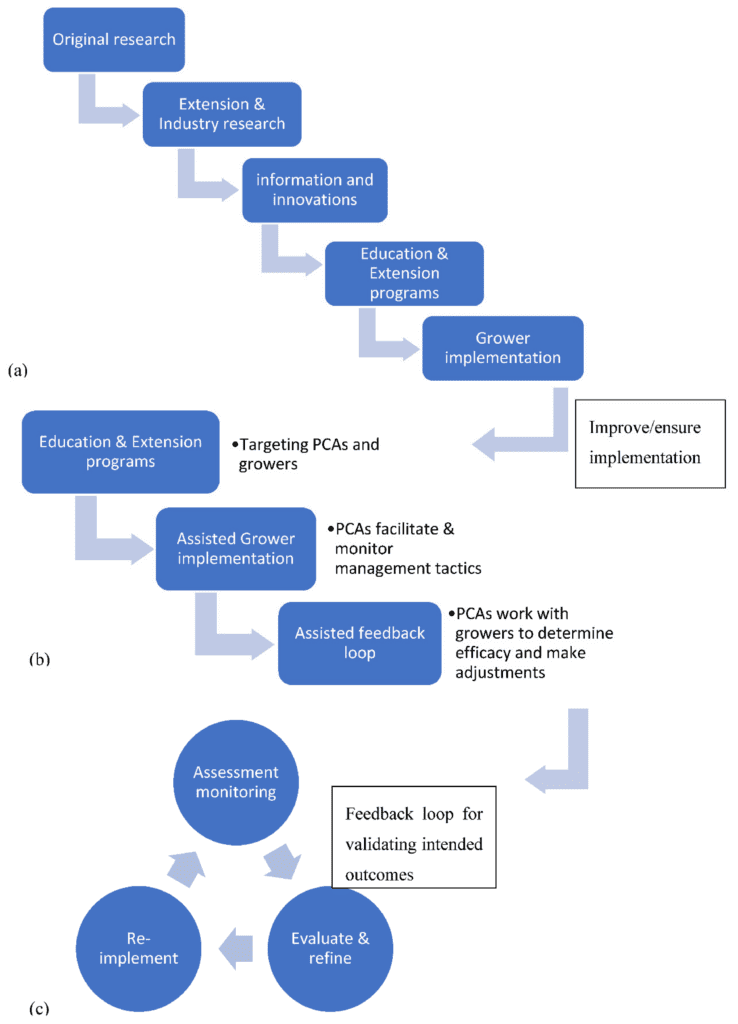

I am Randy, the author behind PestControld.com. Drawing from decades of experience, I aim to provide valuable insights, expert advice, and practical recommendations to help you make informed decisions when assessing viable pest control solutions.